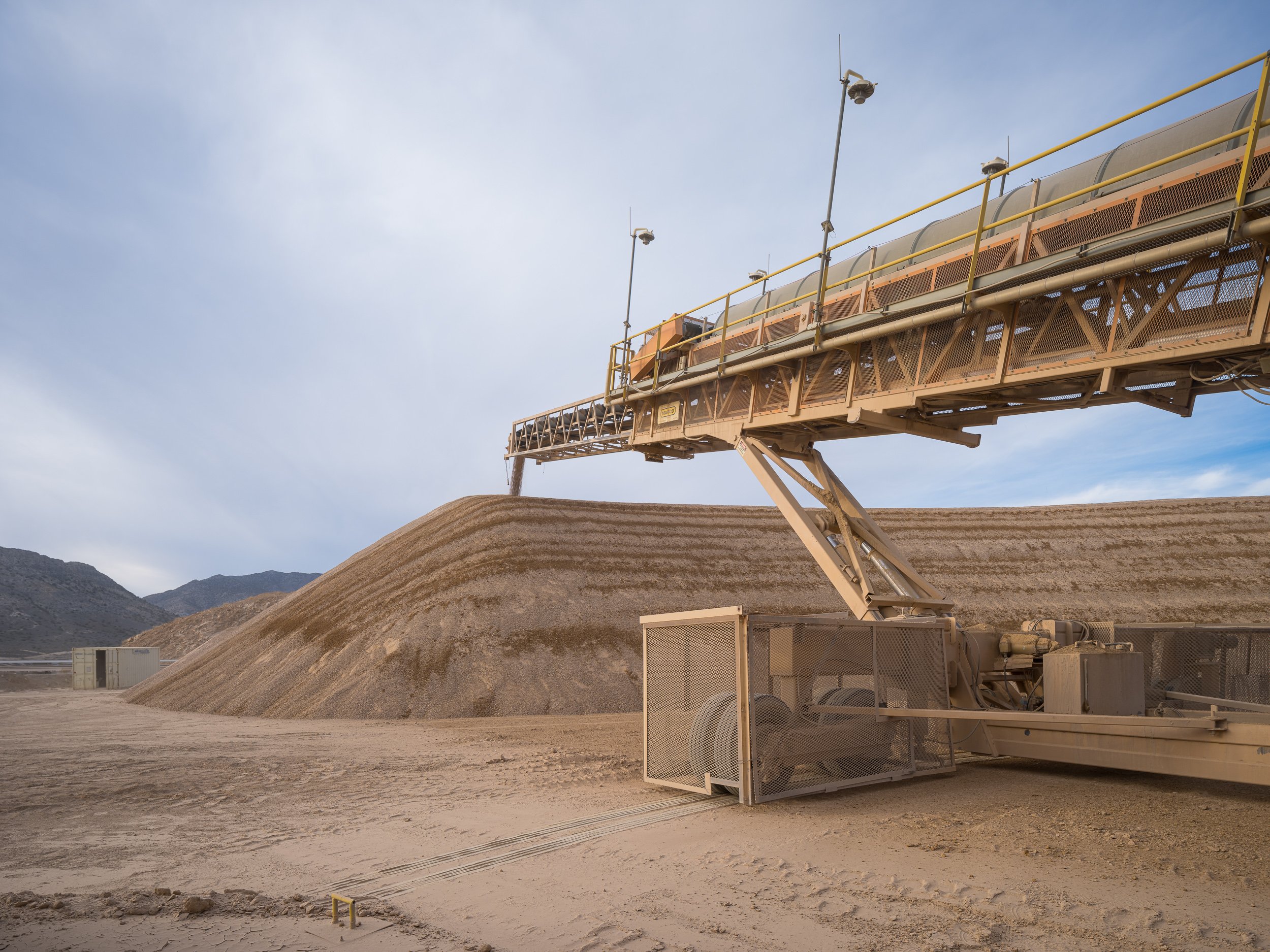Mining stocks aren't usually growth stocks, or at least they're not usually grouped with stocks growing at constant vertiginous rates. Instead, they're cyclical, meaning their growth is lumpy and episodic, and tends to fluctuate with commodity prices.
But times are changing: The world economy needs more metals, especially rare-earth metals. Many of the companies whose names are inseparable from growth (including The Magnificent Seven) depend on increasing amounts of processed materials to build smarter, more efficient, and faster technology. Mining companies sit on the bedrock of this growth -- literally.
As I look at the mining landscape in the U.S. today, here are two mining stocks that deserve a closer look.

Image source: Getty Images.
MP Materials
MP Materials (MP 2.56%) operates the only active rare-earth metal mining and processing facility in the U.S. -- the Mountain Pass site in California. As such, it sits at the heart of the U.S.'s push to build a domestic rare earth supply chain, which up until now has been dominated by Chinese companies.
The strategic importance of MP cannot be overstated. Indeed, rare-earth magnets, which contain neodymium-praseodymium (NdPr) -- the metal MP specializes in -- are critical ingredients in EV motors, wind turbines, electronics, and defense systems.

NYSE: MP
Key Data Points
Not only does the Mountain Pass mine have large economically viable quantities of NdPr, but MP is gradually scaling up its capacity to process concentrates into high-performance magnets. A few years ago, it had to ship unrefined ore overseas to China for processing. Now, with its Forth Worth facility -- and its expected 10X facility in 2028 -- MP is beginning to control the full operational chain on U.S. soil, from mining to processing to magnet production.
Domestic support for the company's operations has been growing louder, especially with tension between China and the U.S. rearing up. In mid-2025, MP announced two blockbuster partnerships, a $500 long-term supply agreement with Apple (AAPL +0.31%) and a $400 million preferred stock deal with the U.S. Department of Defense (DoD). The agreement with the DoD also established a price floor for NdPr oxide of $110 per kilogram.
Investors have rewarded these moves handsomely. The stock is up over 340% on the year and about 460% year over year. Those growth rates are rarely seen for a materials stock.
Still, one shouldn't get bullish from share prices alone: The company reported an adjusted earnings per share (EPS) loss of $0.13. In other words, the company is losing money. Of course, it's expected, as MP recently cut ties with its biggest purchaser in China, Shenghe Resources. For investors who want to see concrete results, however, or at least the processing capacity to meet growing demands, a stake in a young mining company might be too much volatility to swallow. But for those seeking growth in an industry that tends to be cyclical, MP Materials' current price might be the right opening before operations kick up a notch.
The Metals Company
Speaking of "young mining companies," The Metals Company (TMC 2.34%), is chasing a plan that once sounded like science fiction -- vacuuming polymetallic rocks from the ocean floor. The idea is simple, if not easy: harvest potato-sized "nodules" packed with nickel, cobalt, copper, and manganese from the Clarion-Clipperton Zone, where TMC currently holds extensive exploration rights.
Like MP Materials, it's hard to overstate the opportunity. Polymetallic nodules are so dense in metals, they're like an EV battery packed into a lumpy stone. Harvesting these rocks would also be less capital-intensive than, say, mining them straight out of the ground.
Unlike MP, however, TMC is pre-revenue and faces significant challenges to becoming profitable. Chief among them is regulatory: The International Seabed Authority (ISA), which regulates the area in which TMC wants to mine, hasn't finalized rules for commercial deep-sea mining yet. While the U.S. never ratified the treaty that created the ISA -- leaving TMC with a potential alternative if Washington wants to push its own permitting process in the name of securing critical metals -- the company remains effectively at a standstill until the ISA finishes its rulebook.

NASDAQ: TMC
Key Data Points
The company reported about $116 million in total cash at the end of the second quarter. At today's $20 million quarterly cash burn rate, it has about five to six quarters of runway before it'll need a fresh capital injection. Unless spending slows or a partner steps in, additional financing may become inevitable. And for shareholders, that could mean dilution.
Even after a recent sell-off, the company has a $2 billion market cap. That's a lot for a pre-revenue mining stock, but not so much if the company starts harvesting its multi-billion mineral reserves soon. Investors who believe TMC can pull it off would be smart to pick up shares at today's price, as another milestone, such a regulatory approval, could send it soaring.






